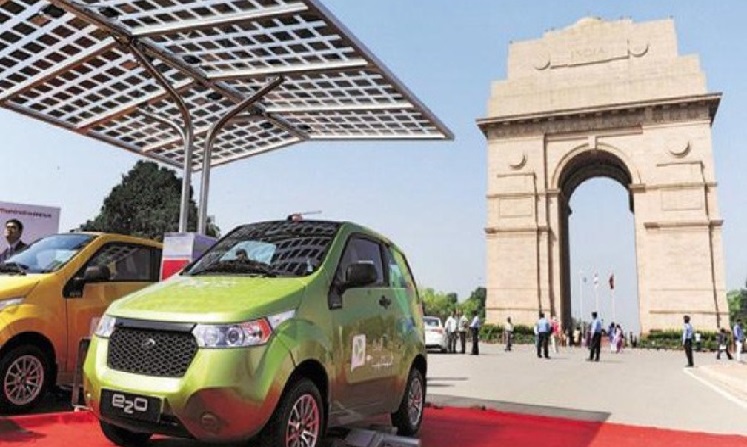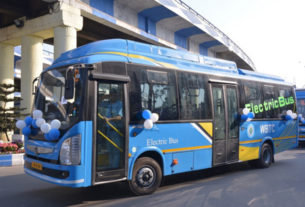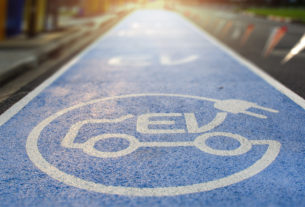The notification of Delhi EV Policy 2020 by Government of the National Capital Territory of Delhi (GNCTD) has evoked positive and rejoicing responses from the industry heads of the domestic EV companies.
Here are the important and interesting ones to add to your perspective!
Sohinder Gill, Director General, Society of Manufacturers of Electric Vehicles (SMEV)
“Delhi policy in a way is a benchmark for other states policy to follow that are based mostly on attracting manufacturers rather than catalysing demand. The customers who were unable to get subsidy under the central government’s scheme due to certain restrictive norms, now have a chance to avail subsidy under this scheme.”
Mahesh Babu, Managing Director and CEO, Mahindra Electric
“I thank the Delhi government for quickly notifying robust and well-thought EV policies that will further boost the EV sales in the Capital. The EV policies are aimed at faster adoption of EVs both in personal and shared mobility segments and extending the incentives to personal buyers will further help the development of the entire ecosystem. The open-permit system for electric autos in Delhi will promote zero-emission last and the first-mile green mobility. The policies are in-line with India’s aim to reduce its oil-import bill and air-pollution.”
Naveen Munjal, MD, Hero Electric
“I would like to congratulate the Delhi government on launching the new electric vehicle policy that will go a long way in boosting Delhi’s economy, creating jobs and reducing air pollution in the national capital. The incentives declared under this policy will be beneficial to the customers and will certainly help Delhi achieve its goal of electrification of vehicles. I would like to express my gratitude to the CM, Arvind Kejriwal and his team for his vision and for this progressive policy and hope that it will inspire other states in India to adopt similar measures”
Nagesh Basavanhalli, MD & CEO, Greaves Cotton Limited
“The EV Policy announced by the Delhi government is a welcome step in the right direction as it will encourage the adoption of electric vehicles in the capital and will set an example for other states to follow. The new policy providing incentives worth Rs 30,000 on electric 2-wheelers and 3-wheelers, along with loan facilities on low-interest rates will not only boost the EV adoption, but also generate employment opportunities; which is much required considering the current scenario.”
“Taking a step further, the policy also talks about strengthening the infrastructure by setting up 200 charging stations. This will go a long way to create a sustainable ecosystem that will impact us and the next generation in a positive way.”
Jeetender Sharma, MD and Founder, Okinawa Scooters
“When it comes to the adoption of electric vehicles, affordability has been one of the major concerns for buyers. Since most of the EV manufacturers have to import parts like battery cells which are not manufactured in India. This increases the cost of the product. With Delhi government announcing incentives of up to INR 30,000 on two-wheelers, we expect to see an easy and faster adoption of the same among buyers now. What is more important is to push people towards considering EVs over ICE. Once people become familiar and comfortable travelling on EVs, we can expect an overall mindset shift and a widespread benefit”
Tarun Mehta, CEO and co-founder, Ather Energy
“The Delhi Government has created a policy that addresses the issues of accessibility for the end consumer. The additional subsidy makes EVs more affordable across the board and offering it to higher performance vehicles, will ensure that end consumers will actually purchase and use these vehicles. Delhi has taken a holistic approach to the policy, taking into account charging infrastructure, different automobile models and scrappage of old internal combustion engine (ICE) vehicles.”
Saurav Kumar, CEO & Founder, Euler Motors
“The new electric vehicle policy by the Delhi Government is a welcome step that will accelerate EV transition across segments. It is a holistic policy that addresses core EV challenges of subsidizing cost differences with respect to Internal Combustion Engine (ICE) vehicles, financial incentives on loans, creation of charging stations and skill creations. Covid-19 gave us a rare glimpse into clear sky and low AQI air to breathe. We believe that accelerating Electric Vehicles will bring health, geo-political and economic benefits to India”
“Euler Motors looks forward to working with Delhi Government and other respective stakeholders to help achieve the chief minister’s goal of 25% Electrified Delhi through our fleet of electric commercial vehicles for last mile logistics. The Government and Industry must work together to drive innovation in the area of clean energy alternatives – and there is particular opportunity for India to maximize the opportunity in the area of EV. We believe this policy will help India’s capital emerge as an example to other cities across the world in the long run – and not only reduce reliance on ICE but also deliver near term impact in the form of a safer environment.”
Rahul Sharma, Founder and CEO, Revolt Intellicorp Pvt Ltd
“It will prove to be a game changer and lay the foundation for Delhi to emerge as the EV capital of the country.”
Pankaj Tiwari, Business Development Head, Nexzu Mobility India
“Delhi Government’s policy for Electric Vehicles comes at the right time for this industry segment, which has been reeling under pressures of the recessionary conditions from last year followed by the onslaught of the COVID-19 pandemic which necessitated the phases of lockdown. The consumer focussed incentivization will bring the different categories of electric vehicles in the consideration set of buyers, who were shying away so far. The policy is also wholistic in nature that will be steered by an ‘EV Cell’ and presents a five year roadmap that will see 5 lakh EVs on roads of the National Capital. Further, the state government envisages setting up a strong network of charging infrastructure comprising of 200 charging stations that will act as a catalyst to the growth of the segment as it will effectively address the range anxiety concerns.”
Ajay Sawhney, Partner, Cyril Amarchand Mangaldas
“It was imperative for Delhi to enact such a policy to ease adoption of EVs into the system and curb the pollution problem. No doubt the policy benefits have really raced ahead of any other state level policies in India. One can now expect EV sales picking up, customised loan products for EVs in the market, and high degree of investor interest in the associated infrastructure like private charging stations and battery recycling businesses. However, the effectiveness of policy would still depend on many factors including India’s dependence on battery imports and a grid which is not very reliable at present.”
Suhas Rajkumar, Founder, Simple Energy
“Delhi government should be thanked for such a well-thought policy that will boost the EV adoption and create many job opportunities with it. The low-interest rates on loans and incentives up to 30,000 for two and three-wheelers will surely attract more buyers and help build the ecosystem faster. The open permit for the first mile and last mile for shared mobility will help reduce the carbon emission effectively to push Delhi towards achieving the zero-emission policy and also put India on a fast track on adopting the new way of clean transportation. Now all hope with other states to adapt to this new policy soon.”
Harsh Vardhan Didwania, Director & Co-Founder, OmJay EV Limited, EeVe India
“The policy has rightfully set a new benchmark for the auto industry as a whole. It’s a very thoughtfully designed policy that will not only encourage customers to replace their existing vehicles with e-vehicles but will also help boost our economy to a large extent. Having a futuristic approach, it will undoubtedly amplify the contribution to sustainable development, and nothing better than this to promote green mobility.”
Also Read: 2020 Delhi EV Policy: All You Need To Know!





